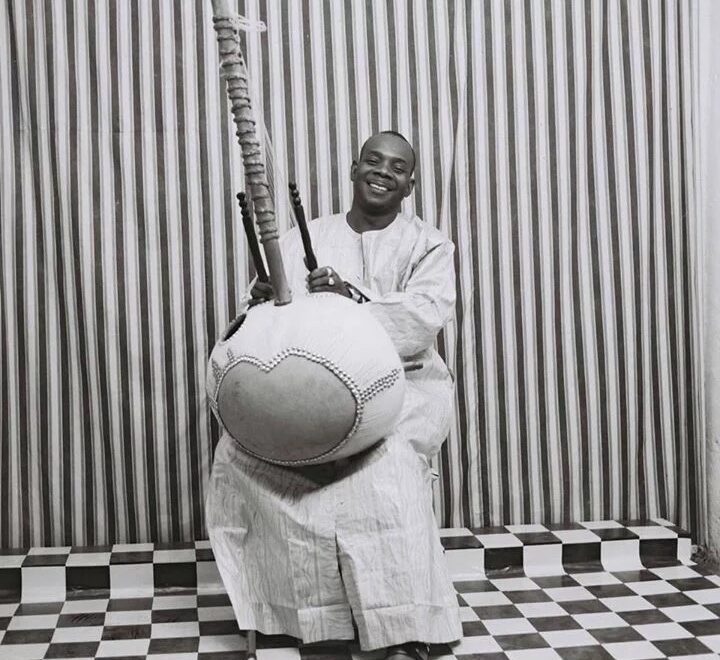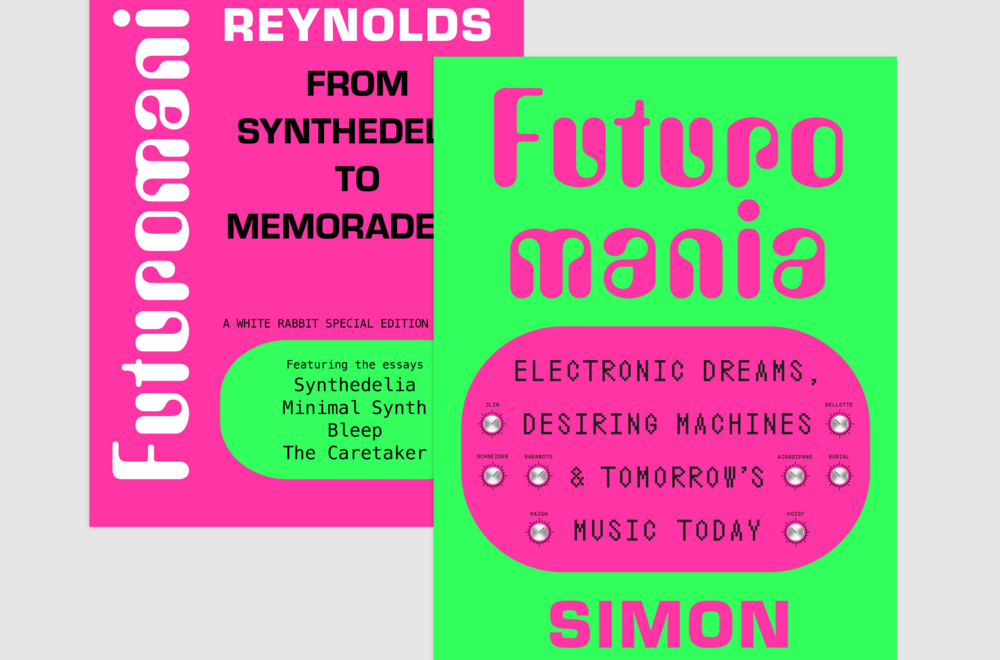“Dubwise but not exactly dub, rich in ambience but not exactly ambient music.” With three of the classic Sade albums (Promise, Diamond Life, Stronger Than Pride) recently repressed […]
Alchemy and Ancient Astronauts: On Jorge Ben’s 1974 classic ‘A Tábua de Esmeralda’

Jorge Ben didn’t need a hit in 1974. The Brazilian singer-songwriter’s Ben, released two years earlier, had capped a run that definitively established him as one of the country’s most popular musicians, while Caetano Veloso and Gilberto Gil’s tireless boosterism had cemented the legacy of his early work as a harbinger of tropicália, the defining sound of Brazil in the late 1960s.
Nearly every song on Ben had been either a radio hit or a popular anthem. He wrote one about the humility of a local soccer player that became so beloved the player demanded royalties. His social capital had never been higher, and he was free to do whatever he wanted. So he wrote an album about an esoteric medieval philosophy and ancient astronauts. It’s a masterpiece.
Ben emerged in 1963 with the cocksure R&B samba of “Mas Que Nada,” a song that instantly made the 21-year-old singer a star. Its success also locked him into a grueling cycle that saw his label push him to recreate its success, forcing him to churn out samba after samba and stifling his growth. Though he quickly burned out on the process, the training served him well when it came time to follow up Ben.
Unlike most of the certifiable classics of the era — Gal Costa’s Índia, Gilberto Gil’s Expresso 2222, Caetano Veloso’s Araçá Azul, Tim Maia’s Racional series, Lô Borges and Milton Nascimento’s Clube da Esquina — A Tábua de Esmeralda is a small-scale album. Ben’s backing band, Trio Mocotó, had established themselves as one of Rio de Janeiro’s preeminent funk ensembles on 1969’s Jorge Ben and the next year’s Força Bruta. But on A Tábua they’re so deep in the pocket it’s easy to forget they’re even there.
Gone are the screaming brass charts that powered the heavy funk of Jorge Ben’s “Take It Easy My Brother Charles.” Everything, including the occasional bit of orchestration, follows the sound of Ben’s voice. Even the emotional stakes were pitched low, a far cry from the heightened consciousness that tropicália had introduced; Ben’s primary concern, he told a reporter around this time, was that his music would “bring peace of mind and tranquility to those who listen to it.”
Remarkably, he succeeded. A Tábua de Esmeralda’s sweetness, its sense of self-assurance, transcends language. While its songs don’t shy away from the complexities of Brazilian society in the early 1970s, it wears them — and, by extension, trouble generally — lightly, buoyed by the conviction that one man’s pleasure is sufficient to keep the ills of the world at bay, even if only for a moment.
The light of Ben’s happiness and delight illuminates everything here, radiating from his guitar’s nylon strings and the grinning sound of his voice, all channeled through the guitar, bass, and drums of Trio Mocotó and reflected back in Paulinho Tapajos’ sunny production. Plenty of records aim to give pleasure; A Tábua, for all its simplicity, is bright enough to blot out pain.
Throughout the album, Ben’s pleasure is contagious. He uses “Eu Vou Torcer”’s twilight lope as an excuse to list a few things he thinks are worth saluting: Argentine tenor saxophonist Gato Barbieri, the Flamengo football club, St. Thomas Aquinas, an unnamed friend who has a heart condition, the general fact of blue skies. The album-opening “Os Alquimistas Estão Chegando Os Alquimistas” heralds the imminent arrival of the alchemists the way “Sgt. Pepper’s Lonely Hearts Club Band” trumpets the titular group; “Ah!” you think, “a great party is about to get even better.”
As with the Lonely Hearts, the alchemists are both the stars of the show and completely incidental to it. Ben claimed that his interest in alchemy was purely artistic, telling a reporter, “most songs are alchemical, but always as a musical philosophy.” Whether or not that’s the hedging of a devoted Catholic with a potentially heretical interest in the occult is impossible to say, but one glance at the album cover’s illustrations of baskets of sun and dueling snakes makes it clear that these ideas were, at the very least, something he was willing to align himself with.
In philosophical form, alchemy harnesses the extra-scientific idea of turning lead into gold as a way of understanding pain, suffering and change. We naturally move through the cycle of birth, death and rebirth; the spiritual practices prescribed by alchemy quicken this process and allow us to purify ourselves. The aim: To enter a kind of co-working relationship with the gods. You become the purest form of yourself, and you make the world a better place.
On A Tábua, Ben refines the unhurried vocal style he’d developed on Força Bruta. He sits patiently behind the beat, occasionally going off-meter when it suits him, his delivery recreating the calm control of bossa nova without an ounce of saudade weighing him down. He rolls words around in his mouth like hard candy, ascending beyond his natural measure to pluck a high note and returning to his base to savor it. He plays guitar the same way, moving with a soft determination and chunkiness that suggests he’s using a bunch of feathers for a pick.
It’s not difficult to imagine the appeal of Hermeticism for an artist like Ben, who hammered away at what he saw as his own leaden style as a young musician before he — and Brazil, at least artistically speaking — entered a golden age in the late 1960s. While the cycle it describes has been used as a frame for understanding change since antiquity, and the Christian narrative of life, death, and resurrection is baked into Western civilization’s storytelling and myth-making at an atomic level, Hermeticism tips the balance of power. It is the alchemist, and not the divine, who is responsible for their own redemption. Even if the end goal is union with the gods, it’s the achievement of the human that is to be celebrated.
Thus, even when he’s not singing about it, Hermeticism is the ghost in A Tábua’s machine, its applied principles animating every strum and note. It’s impossible to overstate the importance of happiness in this music, which Ben delivers from a place of what seems like pure contentment. The ease in his voice, the simple assurance of his playing, the willingness of the band to stay so near to him, even the understatement of Osmar Milito, Darcy de Paulo, and Hugo Bellard’s string arrangements — they all suggest what it might feel like to discover that your hard work has paid off, that you’ve actually transformed into the person you wanted to become.
Lyrically, though, Ben doesn’t explore these ideas in depth — at least, not explicitly; for him, the alchemists are mostly interesting characters who spent their life in pursuit of a noble goal, and who were convinced of a magic that lay beneath the surface of daily life. “O Homem da Gravata Florida” is a meditation on the meaning of a man’s floral necktie, which in Ben’s telling opens like a window onto the world’s natural harmony. While the man in question is the alchemist Paracelsus, the slink of the song gives it a sexiness that the father of toxicology wasn’t particularly known for.
The titular widow in “O Namorado Da Viúva” (“The Widow’s Boyfriend”) was, according to Ben, once married to Nicholas Flamel — he of the philosopher’s stone — and so carries the burden of mourning a man who was not supposed to die.
More than merely a breath of fresh air, his contentment makes A Tábua feel free of ego, which grants him a remarkably clear emotional perspective. He gazes at the stars in “Errare Humanum Est,” in awe of the depths of the cosmos and wondering whether the gods were in fact visitors from another galaxy who have bequeathed us “a cosmic heritage.” Tapajós dials in echo and doubles Ben’s voice back on itself, setting him against strings that make the song feel like an answer to David Bowie’s “Space Oddity” (complete with launch countdown!). But where Bowie stared out from the night sky and found nothing but alienation, Ben is struck by the smallness of human life and emerges both comforted and humbled. “Errare humanum est,” he sings with a shake of the head. “To err is human.”
Despite his many charms, Ben’s unworried acceptance of his own point of view does keep him from questioning some of his uglier motives. “Menina Mulher Da Pele Preta” finds him lustily eyeing a woman “with malice,” a jarring admission in what’s otherwise a gorgeous love song. And it would be easier to write off the pick-up artist maneuvering of “Minha Teimosia, Uma Arma Pra Te Conquistar” if the title didn’t translate to “My Stubbornness is a Weapon to Conquer You.”
Elsewhere, though, Ben’s robust sense of self allows him to fully embrace his terrestrial life as a Black man in Brazil, a country whose racial legacy is nearly as ugly as that of the U.S. On “Zumbi,” he looks on in sadness at a slave auction where an African princess is being sold alongside her subjects. Aside from the horrifying context, the song is one of A Tábua’s pluckiest, gently goosed along by what sounds like a triangle and a single thrilling fiddle line that rides out the chop of Ben’s guitar. But it’s impossible to miss the present-day implication as he wonders aloud about the return of Zumbi, the leader of a community of enslaved people who fought the Portuguese in the mid-1600s.
As Caetano Veloso notes in his book Tropical Truth, Ben was “not only the first great [B]lack composer since bossa nova…he was also and most importantly the first to make that Blackness [his] determining stylistic element.” Ben celebrated Blackness in his music, from his integration of American R&B and soul to the many, many odes to unambiguously Black women throughout his catalogue. His ability to build a truly Afro-Brazilian music nearly derailed Gilberto Gil’s career before it even got started; he simply believed there was no way he’d be able to do it as well as Ben.
Pleasure, then, is Ben’s ultimate achievement. For all its bright colors and undying charm, A Tábua de Esmeralda isn’t merely an exercise in escapism. Happiness, too, is part of life, as real and inescapable as the greatest calamity, and its persistence in the face of things suggests that the world is more charmed than we might sometimes want it to be. Ben sings from the belief that our time here is always on the verge of being transformed, and that even the darkest hours can be defeated by good humor.
This isn’t magical thinking. By imagining a better society, we begin the process of creating it, even if we never see it come to pass. It’s not immortality, but it’s close — the fire that lights the world springs from our sparking minds. “Jorge Ben became a symbol, a myth, a master for us,” Veloso writes. Bright as a summer day and dusted with practical magic, A Tábua de Esmeralda is the greatest spell he ever cast. Because it’s not a spell at all.










